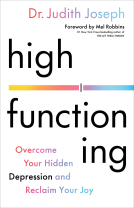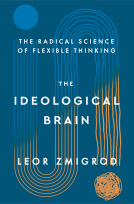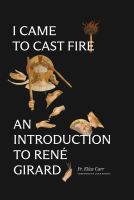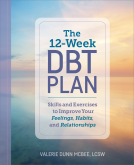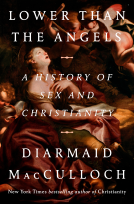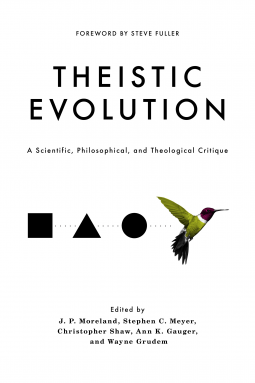
Theistic Evolution
A Scientific, Philosophical, and Theological Critique
by J. P. Moreland, Stephen C. Meyer, Christopher Shaw, Ann K. Gauger, and Wayne Grudem (editors)
This title was previously available on NetGalley and is now archived.
Send NetGalley books directly to your Kindle or Kindle app
1
To read on a Kindle or Kindle app, please add kindle@netgalley.com as an approved email address to receive files in your Amazon account. Click here for step-by-step instructions.
2
Also find your Kindle email address within your Amazon account, and enter it here.
Pub Date Nov 30 2017 | Archive Date Nov 05 2017
Description
This volume of more than two dozen essays written by highly credentialed scientists, philosophers, and theologians from Europe and North America provides the most comprehensive critique of theistic evolution yet produced, opening the door to scientific and theological alternatives.
A Note From the Publisher
PDF may not be compatible with all reading devices
Advance Praise
“This volume fills a wide and expanding gap for Christians who continue to struggle with the relationship of evangelical Christianity to the claims of science. Specifically, for those who have rightly rejected the claims of unguided evolution, this book takes on the similar challenge of the possibility of theistic evolution. Scholarly, informative, well-researched, and well-argued, this will be the best place to begin to ferret out reasons for conflict among Christians who take science seriously. I highly recommend this resource.”
—K. Scott Oliphint, professor of apologetics and systematic theology and dean of faculty, Westminster Theological Seminary
“Theistic evolution means different things to different people. This book carefully identifies, and thoroughly debunks, an insidious, all-too-commonly accepted sense of the phrase even among Christians: that there is no physical reason to suspect life was designed, and that evolution proceeded in the unguided, unplanned manner Darwin himself championed.”
—Michael J. Behe, professor of biological sciences, Lehigh University; author, Darwin’s Black Box and The Edge of Evolution
“Evangelicals are experiencing unprecedented pressure to make peace with the Darwinian theory of evolution, and increasing numbers are waving the white flag. The tragic irony is that evolutionary theory is more beleaguered than ever in the face of multiplying scientific challenges and growing dissent. Until now there has been no consolidated scholarly response to theistic evolution that combines scientific, philosophical, and theological critiques. I was excited to hear about this ambitious project, but the final book has exceeded my expectations. The editors have assembled an impressive cast of experts and the content is top-notch. Theistic evolutionists, and those swayed by their arguments, owe it to themselves to read and digest this compendium of essays. This book is timely and necessary—quite literally a godsend.”
—James N. Anderson, associate professor of theology and philosophy, Reformed Theological Seminary, Charlotte; author, What’s Your Worldview?
“Repeating the error of medieval Christianity, theistic evolution absolutizes the words of finite, fallible humans and relativizes the Word of an infinite, infallible God. As this tremendous and timely collection thoroughly demonstrates, scientific stagnation, circular philosophy, and heterodox theology are the inevitable results. This is simply the best critique of theistic evolution available.”
—Angus Menuge, chair of philosophy, Concordia University Wisconsin; president, Evangelical Philosophical Society; author, Agents Under Fire: Materialism and the Rationality of Science
“This significant book persuasively argues that theistic evolution fails as a theory—scientifically, philosophically, and biblically. And with its broad-ranging collection of essays, it mounts a very impressive case. Strongly recommended, both for those who seek to defend Christianity intelligently and for those who find Christianity implausible because of the claims of neo-Darwinism.”
—Michael Reeves, president and professor of theology, Union School of Theology
“The theistic evolution solution to the creation-evolution controversy herein encounters a substantial, sustained, and trenchant critique. The team of scientific, philosophical, and theological scholars assembled by the editors have joined to confront the venerable theory with a stinging challenge that its adherents will have to answer if they value their scholarly integrity. This is necessary reading for those who wrestle with the great questions surrounding the origins of life.”
—Peter A. Lillback, president, Westminster Theological Seminary
“The theory of theistic evolution is certainly not new. But as a vigorous antagonist to evangelical Christianity, it has leaped to new life on the cultural stage. Most Christians have the sense to reject the evolutionary model of Darwin with its pronounced atheism, but they are sometimes intrigued by the possibility of theistic evolution. In this book, evangelical believers are treated to a serious assessment of the claims of theistic evolution at the hands of some of the greatest thinkers God has ever given to the church. These assessments are thorough, exciting, and support the biblical creation story in unique and new ways. If you intend to read only one volume to bring you up to date on cultural challenges to Christianity, this book is the one you need to read.”
—Paige Patterson, president, Southwestern Baptist Theological Seminary
“This landmark achievement contains an amazing collection of chapters by a powerful group of fully qualified experts in molecular biology, mathematics, philosophy, and theology. The chapters are clear, detailed in addressing all aspects of theistic evolution, and of a tone in keeping with 1 Peter 3:15: ‘with gentleness and respect.’ I consider this a must-have book for any Christian who wants to be able to give compelling answers to others who believe in theistic evolution.”
—Richard A. Carhart, professor emeritus of physics, University of Illinois at Chicago
“This book offers a much-needed, comprehensive critique of evolutionary creationism (theistic evolution), covering its scientific, philosophical, theological, and biblical deficiencies. It devotes much space in particular to the scientific side. This focus is needed because of the common, unwarranted assumption that Darwinism is doing well as measured by scientific evidence. Several articles, from different angles, show how much Darwinism depends on seeing all biological evidence through the lens of a prior commitment to faith in the philosophy of naturalism—particularly the ungrounded assumption that unguided natural forces must suffice as a complete account of origins.”
—Vern S. Poythress, professor of New Testament interpretation, Westminster Theological Seminary
“‘In wisdom you have made them all,’ says the psalmist of God’s activities in nature (Ps. 104:24). But believers today, often blinded by modern science, fail to see that divine wisdom. This valuable volume challenges the assumptions of much scientific endeavor and proposes a fresh paradigm that is open to God’s involvement in nature. It deserves a wide and thoughtful readership.”
—Gordon Wenham, emeritus professor of Old Testament, University of Gloucestershire, United Kingdom
“Few scholars even marginally knowledgeable regarding the nature of this debate could read objectively the lineup of scholars in this volume and not be impressed. Beyond the scholars’ academic credentials, the topics covered are both sophisticated and timely. For this reviewer, the experience caused me to respond time and again: ‘I want to start right there . . . or maybe there . . . wow—have to read that one first . . .’ The topic is not always an easy target, but after almost one thousand pages of critique across interdisciplinary lines, I do not think that it could be bettered. Kudos! Highly recommended.”
—Gary R. Habermas, distinguished research professor and chair, Department of Philosophy, Liberty University
“As the debate over the origins of the universe, earth, and humans continues, and Christians grapple to understand the relationship between science and Scripture, evolution and creation, the voices in this book need to be heard. Scientific data need not be in opposition to what the Bible teaches about God and his world. The big questions about life are simply beyond the reach of ‘objective’ analysis. This volume critiques theologically and philosophically the flaws of positions that marginalize God from the process.”
—James Hoffmeier, professor of Old Testament and ancient Near Eastern history and archaeology, Trinity Evangelical Divinity School
“Theistic Evolution is a carefully crafted, academically sophisticated interdisciplinary challenge to the attempt to wed Christian theism to any version of the Darwinian project. I am awed by its scope and by the magnificent success of its intentions. Whether your interest is in the scientific deficiencies, the philosophical failings, or the theological dangers of Darwinism hitched to theism, look no further than this thorough analysis. Theistic Evolution is simply the most comprehensive and convincing critique of the topic I’ve ever read—a singular resource for careful thinkers—replacing a dozen books on my shelf.”
—Gregory Koukl, president, Stand to Reason; author, Tactics and The Story of Reality
“An increasing number of evangelicals are advocating theistic evolution as the best explanation of human origins, thereby denying the special creation of a historical Adam. Without taking any specific view as to the age to the earth, this important new book demonstrates that theistic evolution fails to take proper account of Genesis 1–3 as a historical narrative. Leading scholars from a variety of academic disciplines argue that theistic evolution is exegetically ill-founded, theologically damaging, scientifically implausible, and philosophically unjustifiable. Written with an irenic tone toward those it critiques, this book will help guard against false teaching in the church that undermines the gospel and will also provide apologetic help for confident evangelism in a secular world.”
—John Stevens, national director, Fellowship of Independent Evangelical Churches, United Kingdom
“With the ‘death of God’ and the ‘hermeneutics of suspicion’ having captured the academy decades ago, the apologetic discussion moved decisively to the nature and origin of human beings. With this volume, the editors and contributors to Theistic Evolution have given us an important and much-needed resource for the conversation currently taking place within evangelicalism. Comprehensive in its breadth, specific in its critique, and confidently nuanced in its tone, each chapter contributes to a thorough rebuttal of the idea that theistic evolution is compatible with either historic Christian faith, sound reasoning, or rigorous science. But while written by specialists, Theistic Evolution is remarkably approachable to the average reader. I highly recommend this volume to students, pastors, educators, and anyone else who cares deeply about the discussion of human origins. This is a major contribution to one of the most important debates of our time.”
—Michael Lawrence, senior pastor, Hinson Baptist Church, Portland, Oregon; author, Biblical Theology in the Life of the Church
“Under the banner of ‘theistic evolution,’ a growing number of Christians maintain that God used evolution as his method for creation. This I believe to be the worst of all possibilities. It is one thing to believe in evolution; it is quite another to blame God for it. Indeed, theistic evolution is a contradiction in terms—like the phrase “flaming snowflakes.” God can no more direct an undirected process than he can create a square circle. Yet this is precisely what theistic evolution presupposes. Modern Christians too often buy high and sell low—just as neo-Darwinian evolutionism is fighting for its very life, it is being propped up by an irrational hypothesis. Theistic Evolution is the most thorough and incisive refutation of this dangerous presupposition. I strongly recommend this volume!”
—Hank Hanegraaff, president, Christian Research Institute; host, Bible Answer Man broadcast
“This volume is the most comprehensive study on the relation between evolution and Christian faith I have discovered so far. While opening up fascinating firsthand insights into cutting-edge scientific results, at the same time the book treats the reader to a bird’s-eye view, asking the fundamental philosophical and theological questions and delving into the underlying worldview assumptions. It provides a very substantial contribution to the ever-ongoing dispute between naturalism and Christian faith in the areas of philosophy, theology, and the sciences.”
—Alexander Fink, director, Institute for Faith and Sciences, Marburg, Germany
“Essentially, theistic evolution says Charles Darwin and Richard Dawkins got the science right, but that God is still somehow involved. Putting this view into the crosshairs, this book argues convincingly that the science of evolution is in fact wrong, and that any theistic gloss one puts on it is thus doubly wrong.”
—William A. Dembski, former senior fellow, Discovery Institute; author, Intelligent Design: The Bridge Between Science and Theology; The Design Revolution; and Intelligent Design Uncensored
“Theistic Evolution is a major contribution to the very lively debate of exactly how to understand the ‘data’ from God’s revelation of himself in his Word with the ‘data’ from his revelation of himself in his world. Previous contributions to this debate have generally focused on the data from either science or Scripture. Theistic Evolution benefits from its comprehensive analysis from theologians, philosophers, and scientists in the same book. Whatever are your current views, Theistic Evolution will provide analysis from some of the most prominent critics in this conversation that should be helpful to people on both sides of this debate.”
—Walter Bradley, former professor of mechanical engineering, Baylor University
“The question of origins rarely fails to attract interest, not least because it is overloaded with worldview implications. For too long the increasingly shaky modern ‘Darwinian’ synthesis has been accommodated into theological thinking. This remarkable book exposes how scientifically and philosophically preposterous the notion of theistic evolution really is. An authoritative and vital contribution to the topic!”
—David J. Galloway, president, Royal College of Physicians and Surgeons of Glasgow; honorary professor, College of Medical, Veterinary and Life Sciences, University of Glasgow
Available Editions
| EDITION | Other Format |
| ISBN | 9781433552861 |
| PRICE | $60.00 (USD) |
Links
Featured Reviews
 Zachary G, Reviewer
Zachary G, Reviewer
"Theistic Evolution" is a behemoth of a book, but for good reason. In it, you will find one of the most comprehensive collections of essays that take a look at the view of God's creation known as theistic evolution (or evolutionary creationism). The book is accessible in that it compiles these essays in an easy to navigate format, breaking them up into three categories: The scientific critique, the philosophical critique, and the biblical/theological critique. It should be noted that it is quite academic, and at over 1,000 pages, not a light read by any means.
As a student of Theology, I know that it is important to approach any particular point of doctrine with a mindset that is seeking to find the truth and to do this with intellectual honesty. It is important to look at a variety of views when there is more than one view that is widely held. The topic of theistic evolution is one such doctrine that can be quite polarizing in the Christian community, with proponents of each side often making a strawman out of the other's views.
As someone who personally supports the very view this book critiques, I recognize that I need to understand the objections to my view, rather than hide from them. For some time, I was looking to find literature that argued against theistic evolution but did so without the emotion and poor theology sometimes used by others. This is not a book that argues "you just need to read the text plainly!" This is a book that presents detailed philosophical, scientific, and theological analysis.
This book is precisely what I needed.
Whether you believe theistic evolution is not true and want to learn more to support your position, or you're like me and seek to understand the very best of arguments against your view, this is a great place to start. I highly recommend this book for seminary students, theologically inclined laypeople, or anyone who wants to delve deep into this fascinating subject.
“Theistic Evolution” is a tour de force! No longer are intelligent and passionate theologians sitting on the sidelines, allowing atheistic or theistic evolutionists lead the debate on creation/evolution. The breadth and depth of the writing of this beast of a book is unmatched on this topic. The contributing scientists, philosophers, and theologians are some of the most well-respected thinkers of our time. While some of the writing can be dense, the book taken as a whole will absolutely increase your faith in the Bible as God’s word—and most importantly—in God himself!
 Joan N, Reviewer
Joan N, Reviewer
This is a huge book. It has taken me over a month to work my way through it. Although I have a degree in science, it is in physics. I read this book as a lay person, so to speak, without advanced training in the biological sciences. My interest in reading this book came from being taught theistic evolution in a Christian college in the early 1970s. I found out that much has changed in the fields of biology and origins since then.
Most of this book is written in a scholarly manner and may be beyond the interest of many Christians. Some of the essays are answers to critiques of previous articles and books. However, Christians interested in the issues of intelligent design, special creation, or evolution would benefit from carefully reading this book.
The book is a critique of theistic evolution: that God arranged and set everything in motion so that life would evolve without additional intelligent input. The authors define theistic evolution as the sufficiency of the undirected mechanism of mutation and natural selection as an explanation for new forms of life. (59) In other words, God created matter with certain properties so that no further activity from God was required to bring about all living things. (60)
The first part of the book is an in depth critique of the creative power of natural selection and random mutation. The conclusion is that these mechanisms do not have the creative power to generate new genetic information. The authors explain how current research shows a loss of information from such mechanisms instead. This section also includes a critique of the assumption of universal common ascent. They pay particular attention to fossil and DNA evidence.
The next part of the book looks at the philosophical aspects of science and creating theories. The authors explore how one should define science and argue that science should not limit itself to strictly materialistic explanations. Rather than science correcting the Bible, perhaps Scripture should correct our scientific ideas. (707) There have been many scientific “facts” in the past that have turned out to be incorrect. It is also noted that theistic evolution fails to explain the development of moral values in humans and the spiritual nature of mankind.
The last part of the book deals with theological and biblical issues. This section is not about the age of the earth. It is about whether Genesis 1-3 should be taken as historical narrative, reporting events that actually happened. Theistic evolutionists in general say that Adam and Eve were not the first human beings, there was no fall into sin, and God did not place a curse on the world. (778) This seriously affects the truth of the gospel and the meaning of Christ's death. The conclusion is that “belief in theistic evolution is inconsistent with belief in the truthfulness of the Bible.” (776)
I have mentioned just a small part of all of the information included in this book. It is a detailed critique of theistic evolution and the works of those who promote it. I am impressed with the amount of information this book contains. It may be overwhelming for some readers. The chapters do contain summary introductions and conclusions to help readers navigate the text and decide which chapters may be of specific interest.
“ID [intelligent design] is essentially consistent with biblical doctrine, and is supported by many scientists and theologians whose views cannot be lightly dismissed,” Colin Reeves writes. (706) Unfortunately, this book does not contain a presentation of intelligent design.
I do recommend this book to Christians who have an interest in the issues of creation, evolution, and other aspects of origins. Be prepared for a good amount of time studying this topic.
Note: I received a complimentary digital ARC of this book. My comments are an independent and honest review. Some of the quotes and page numbers I give may have been changed in the final published edition of the book.
Readers who liked this book also liked:
Sostenes B. Lima, LCSW; Erica Lima, LCSW
Health, Mind & Body, Self-Help
Tanis Allen, LMSW, ACSW
Health, Mind & Body, Self-Help
Sheryl Lisa Finn, MA; Sheryl Paul
Health, Mind & Body, Science, Self-Help





